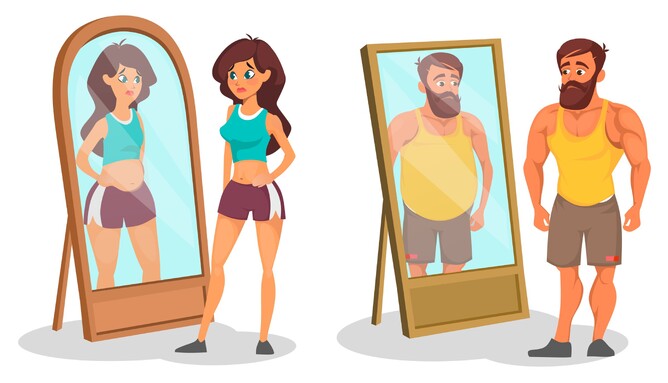Bigorexia and anorexia are two distinct eating disorders, and they have different characteristics and focuses:
Anorexia Nervosa:
Anorexia nervosa is characterized by a relentless pursuit of extreme thinness, leading to self-imposed starvation and an intense fear of gaining weight.
Individuals with anorexia often have a distorted body image, perceiving themselves as overweight or fat, even when they are significantly underweight.
People with anorexia may engage in extreme dieting, excessive exercise, and other behaviours to lose weight and maintain a low body weight.
Anorexia can have serious physical and psychological health consequences, including organ damage, malnutrition, and a high risk of death if left untreated.
Muscle Dysmorphia (Bigorexia):
Muscle dysmorphia, commonly referred to as "bigorexia" or "reverse anorexia," is a subtype of body dysmorphic disorder that primarily affects men.
Individuals with muscle dysmorphia are preoccupied with the idea of being inadequately muscular and lean. They perceive themselves as small or underdeveloped, even when they have a significant amount of muscle mass.
People with muscle dysmorphia may engage in excessive weightlifting and bodybuilding, use anabolic steroids or other muscle-enhancing substances, and follow strict dietary regimens to achieve their desired muscular physique.
This disorder can lead to physical health risks such as overtraining injuries and the misuse of substances, as well as psychological distress due to an obsession with body image.
In summary, while anorexia nervosa is primarily characterized by an obsession with extreme thinness and fear of weight gain, bigorexia (muscle dysmorphia) is characterized by an obsession with becoming more muscular and leaner. Both disorders can lead to physical and psychological health problems and require professional treatment for recovery. It's essential for individuals experiencing symptoms of either disorder to seek help from healthcare professionals specializing in eating or body image disorders.
